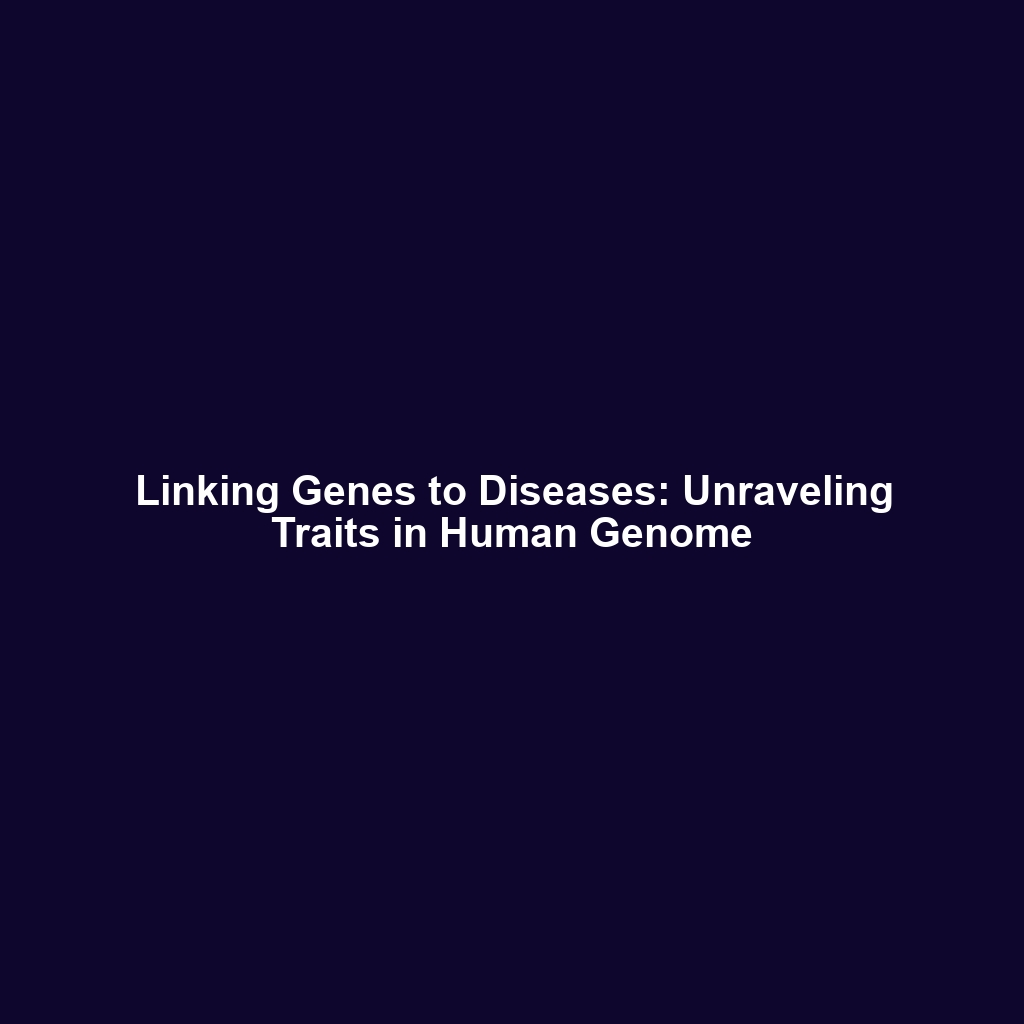How SNPs Are Used to Study Genetic Predispositions to Diseases
The study of Single Nucleotide Polymorphisms (SNPs) has revolutionized our understanding of genetic predispositions to various diseases, particularly cancer, diabetes, and heart disease. Within the context of the Human Genome Project, SNP analysis provides crucial insights into how genetic variations contribute to health risks. This article delves into the significant role of SNPs in genetic research, highlighting their applications, challenges, and future directions.
Key Concepts
Understanding how SNPs are used to study genetic predispositions entails grasping several foundational concepts:
- Definition of SNPs: SNPs are variations at a single base pair in the DNA sequence among individuals. They can affect how humans develop diseases and respond to pathogens, chemicals, and drugs.
- Significance in the Human Genome Project: The Human Genome Project has mapped the entire human genome, making SNPs an essential focus for researchers studying genetic variation.
- Epidemiological Studies: Researchers utilize SNPs to evaluate the genetic risk factors associated with diseases. This approach helps to identify populations at higher risk for diseases like cancer, diabetes, and heart disease.
Applications and Real-World Uses
The implications of SNP research extend beyond academia into real-world applications that enhance disease prediction and prevention strategies:
- Personalized Medicine: SNP analysis is used in tailoring treatments based on an individual’s genetic makeup.
- Risk Assessment: Understanding SNP patterns aids in assessing an individual’s risk for specific diseases.
- Pharmacogenomics: Research in this field explores how genetic variations, including SNPs, influence responses to medications, improving drug efficacy and safety.
Current Challenges
Despite the advancements in SNP research, several challenges persist:
- Data Interpretation: The sheer volume of SNP data can overwhelm researchers, complicating the ability to draw meaningful conclusions.
- Ethical Considerations: Issues surrounding privacy and consent in genetic information sharing are paramount.
- Complex Disease Models: Many diseases, like cancer and heart disease, are multifactorial, making it difficult to isolate the influence of SNPs from environmental factors.
Future Research and Innovations
The future of SNP research is promising, with several innovative directions on the horizon:
- Next-Generation Sequencing (NGS): Advances in sequencing technologies are enabling researchers to analyze SNPs more efficiently and accurately.
- Cohort Studies: Large-scale genetic studies are paving the way for discovering novel SNPs linked to diseases.
- CRISPR Technology: Gene-editing technologies hold potential in modifying SNPs to better understand their roles in diseases.
Conclusion
In conclusion, SNPs play a vital role in understanding genetic predispositions to diseases such as cancer, diabetes, and heart disease. Their study is deeply intertwined with the advancements of the Human Genome Project, shedding light on the complex interplay between genetics and health. As research progresses, continued exploration into SNPs promises to enhance disease prevention and treatment strategies significantly. For further reading on related topics, visit our articles on Cancer Genetics, Diabetes and Genetics, and Heart Disease Research.


